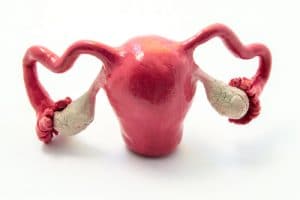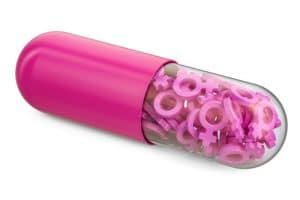Infertility is the inability of a couple to get pregnant after one year of unprotected sex. This article will inform you how couples can approach fertility restoration.
Infertility affects many couples around the world and it may lead to unhappiness in some marriages. The causes of childlessness include a host of disorders that may affect the female or male within a relationship. Fortunately, there are many fertility restoration measures that they can undertake to bring back the joy in their homes.
Women should always consider a fertility restoration procedure if they have the following illnesses:
1. Ovarian disorders: The ovaries are part of the female reproductive system. These two organs are on the uterus, and they release and generate female eggs during the menstrual cycle. These eggs get fertilized by sperm during conception in the Fallopian tube.
Additionally, they produce progesterone and estrogen, which are female reproductive hormones. They are vital in the implantation of the fertilized embryo. They also prepare the lining of the uterus or womb for an impending pregnancy. The organ stops functioning when the woman reaches menopause. All women are born with all their eggs intact in their ovaries. However, they are released during ovulation to facilitate fertilization or menstruation.

A condition such as Turner syndrome leads to the inability of the ovary to function normally. It is caused by harsh treatment regimens such as radiotherapy or chemotherapy that cancer patients receive.
Hyperprolactinemia is also a condition that affects the ovaries. When you suffer from this syndrome, you generate too much prolactin, which is the hormone that enhances breast milk production during and after pregnancy. Additionally, it has the potential to affect ovulation.
2. Uterine or cervical abnormalities: Noncancerous tumors in the uterine wall may block the Fallopian tubes and cause infertility. These tumors can also stop a fertilized egg from getting to the uterus.
3. The blockage or damage of the Fallopian tube: Several factors cause inflammation of this organ. Medical professionals may refer to the condition as pelvic inflammatory disease. Therefore, it can contribute to the damage of the Fallopian tubes.
4. Endometriosis: This is a condition that occurs when endometrial tissue grows outside the uterus. Consequently, it affects the functions of the uterus, ovaries and Fallopian tubes.
5. Cancer: Some cancers that affect the reproductive organs can impair female fertility.
Fertility Restoration Measures

- Clomiphene citrate: It is taken orally and enhances ovulation by causing the pituitary gland to stimulate the growth of an ovarian follicle that has an egg.
- Gonadotropins: These drugs stimulate the ovary to produce multiple eggs.
- Metformin: Doctors prescribe it when insulin resistance is the suspected cause of infertility.
- Letrozole: It can induce ovulation.
- Bromocriptine: A doctor may administer it when the production of the prolactin hormone affects ovulation. The pituitary gland generates this hormone.
Doctors recommend surgery if fertility drugs do not work out. Some of the surgeries include:
- Laparoscopic or hysteroscopic surgery: These procedures correct abnormalities. Therefore, they improve your chances of getting pregnant. Surgery will always correct abnormal uterine shapes and remove endometrial polyps and some other types of fibroids.
- Tubal surgeries: Doctors often recommend laparoscopic surgery if your Fallopian tubes are filled with fluid or blocked. This surgery removes adhesions and creates a new tubal opening.
The following are some of the methods of reproductive assistance:
- Intrauterine insemination (IUI): During this surgery, medical professionals place healthy sperm in the uterus just before ovulation.
- Assisted reproductive technology: During this procedure, a doctor extracts mature eggs from a woman. Then they undergo fertilization with a man’s sperm in a lab. Finally, the doctor transfers it to the uterus after fertilization.
Fertility restoration is vital to infertile women who desire to have children. They should consider undergoing any of the above procedures to solve their sterility issues. However, it advisable to approach competent medical personnel before they make any move.





